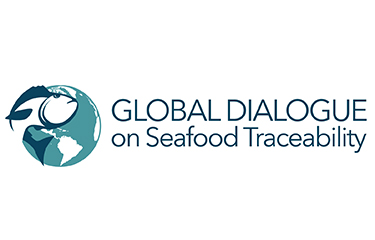A pair of hackathons — with EUR 10,000 (USD 11,100) worth of prizes on the line — aim to improve seafood traceability by developing new technological solutions, including by leveraging blockchain.
The hackathons – one held in Cologne, Germany on 21 to 22 October and the other being held in Bali, Indonesia from 26 to 27 October – are being put on by the Global Dialogue on Seafood Traceability (GDST). For the Cologne hackathon, GDST teamed up with fTRACE and GS1 Germany. For the Bali event, GDST is partnering with SecondMuse and USAID Oceans and Fisheries Partnership.
During the hackathons, software developers quaff large volumes of coffee and other caffeinated beverages as they hack together, developing tech solutions for 24 hours straight before presenting them to a panel of judges. More than 60 producers, processors, and retailers from around the world are expected to participate.
Unlike other worldwide industries, such as parcel delivery and telephone service, the seafood industry lacks a common vocabulary, format, and system for exchanging and sharing information about products and their origins. Seafood traceability systems can't communicate with each other digitally, and data lives with multiple providers and institutions. Traceability systems in seafood are not interoperable, according to the hackathon organizers.
Hackathon participants seek to create solutions for this interoperability challenge in one of four categories, by either creating validation mechanisms for data captured on vessels, making data readable across different platforms, capturing and transmitting information about product origins, or using blockchain to transmit traceability data.
VeChain, a leading public blockchain platform, is cosponsoring these current hackathons, and is the only blockchain sponsor of both hackathons. VeChain says it has expertise in blockchain-powered traceability solutions that can be applied by an array of seafood industry stakeholders at all stages of the supply chain.
Participants will have the chance to participate in VeChain's accelerator and bounty programs, connecting them with the large network of the VeChain ecosystem.
The hackathons build on a similar hackathon GDST held in Bangkok, Thailand in February in which developers also focused on bettering seafood traceability systems. At that hackathon, six teams addressed nine challenges in five main categories: data capture, data sharing, file conversion, catch area zero knowledge proof, and non-GS1 identifiers.
In Bangkok, the team from IdeaSpace Foundation, a Philippines-based organization, won the first-place prize and USD 5,000 (EUR 4,500) for its BluePrint android application that allows fishermen to record fishing trip reports and photos and capture key data elements such as catch, landing, and transshipment. Seafood company Sea Delight is working with the winning team to finish development of the BluePrint app, and has said it will make the app available in open source format to the seafood industry.
Photo courtesy of the Global Dialogue on Seafood Traceability







